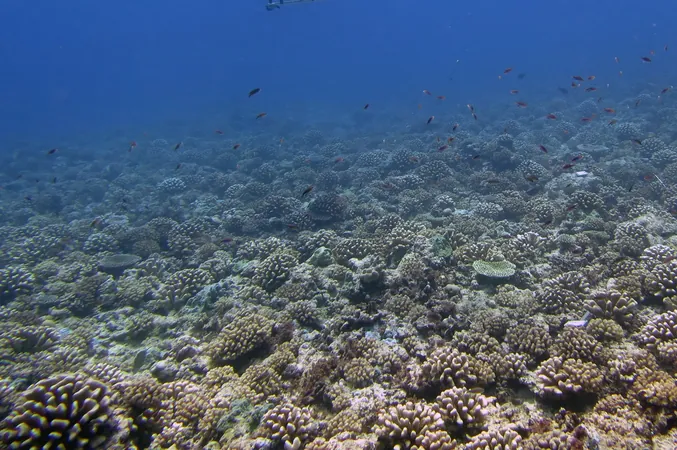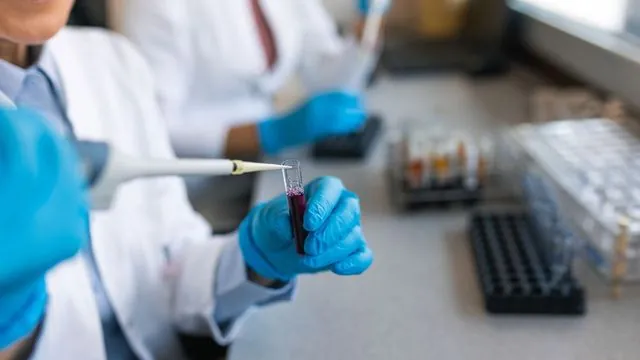
Unlocking the Secrets of Coral Reefs: How Chemicals Fuel Marine Life
2025-04-10
Author: Wei Ling
Recent groundbreaking research has uncovered an astonishing variety of chemicals exuded by coral reefs, showcasing how these vibrant ecosystems are intertwined with marine microorganisms. This study, led by an international team from the Scripps Institution of Oceanography and the University of Hawai'i at Mānoa, reveals that tropical corals and seaweeds release thousands of unique compounds that microbes can decompose and utilize.
In the nutrient-scarce environments of coral reefs, nothing is wasted. Microbes play a vital role in breaking down and recycling materials discarded by other organisms. Craig Nelson, a professor at the UH Mānoa School of Ocean and Earth Science and Technology, explains, “While we knew some substances, termed exometabolites, were available for microbial use, our findings demonstrate that the diversity of these compounds is much greater than previously thought.”
The team was particularly astonished to find that microbes can utilize complex chemicals, traditionally believed to be challenging to decompose—such as benzene rings and steroids. Lead author and postdoctoral researcher Zachary Quinlan notes, “This paints a vibrant picture of how bioavailable substrates affect microbial metabolism and the broader carbon cycle in coastal marine environments.”
Impact on the Carbon Cycle and Reef Health
The dissolved organic materials in our oceans, including those released by coral reefs, possess a carbon volume comparable to atmospheric carbon dioxide. Thus, the researchers emphasize that the way microbes engage with this organic matter is crucial for the global carbon cycle.
A shift from stony corals to fleshy seaweeds dramatically alters seawater chemistry. The researchers conducted experiments to determine the microbial preferences for these different sources. According to associate researcher Linda Wegley Kelly, “Choral and algae can selectively nurture specific microbial communities by exuding unique chemicals that some microbes thrive on.”
The Importance of Coral vs. Algae Dominance
This research highlights the significance of maintaining coral-dominated systems, as transitioning to algae-dominated reefs may jeopardize ecosystem functions, impacting resilience against diseases and bleaching events.
Looking Ahead: The Future of Coral Reef Management
The team plans to further investigate how these chemical features can inform effective coral reef management strategies and contribute to the success of coral restoration initiatives. As we learn more about the intricate balance of these ecosystems, we can take significant strides toward protecting and preserving our planet's vital maritime resources.




 Brasil (PT)
Brasil (PT)
 Canada (EN)
Canada (EN)
 Chile (ES)
Chile (ES)
 Česko (CS)
Česko (CS)
 대한민국 (KO)
대한민국 (KO)
 España (ES)
España (ES)
 France (FR)
France (FR)
 Hong Kong (EN)
Hong Kong (EN)
 Italia (IT)
Italia (IT)
 日本 (JA)
日本 (JA)
 Magyarország (HU)
Magyarország (HU)
 Norge (NO)
Norge (NO)
 Polska (PL)
Polska (PL)
 Schweiz (DE)
Schweiz (DE)
 Singapore (EN)
Singapore (EN)
 Sverige (SV)
Sverige (SV)
 Suomi (FI)
Suomi (FI)
 Türkiye (TR)
Türkiye (TR)
 الإمارات العربية المتحدة (AR)
الإمارات العربية المتحدة (AR)